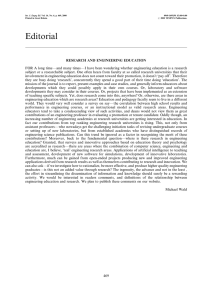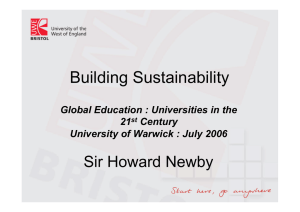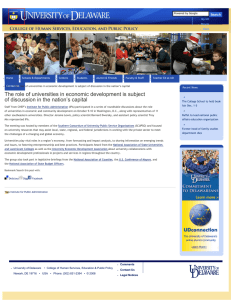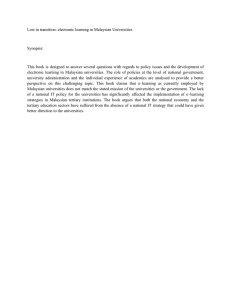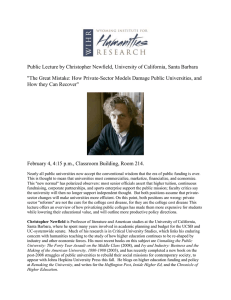Int. J. Engng Ed. Vol. 18, No. 3, p. 255,... 0949-149X/91 $3.00+0.00 Printed in Great Britain. # 2002 TEMPUS Publications.
advertisement
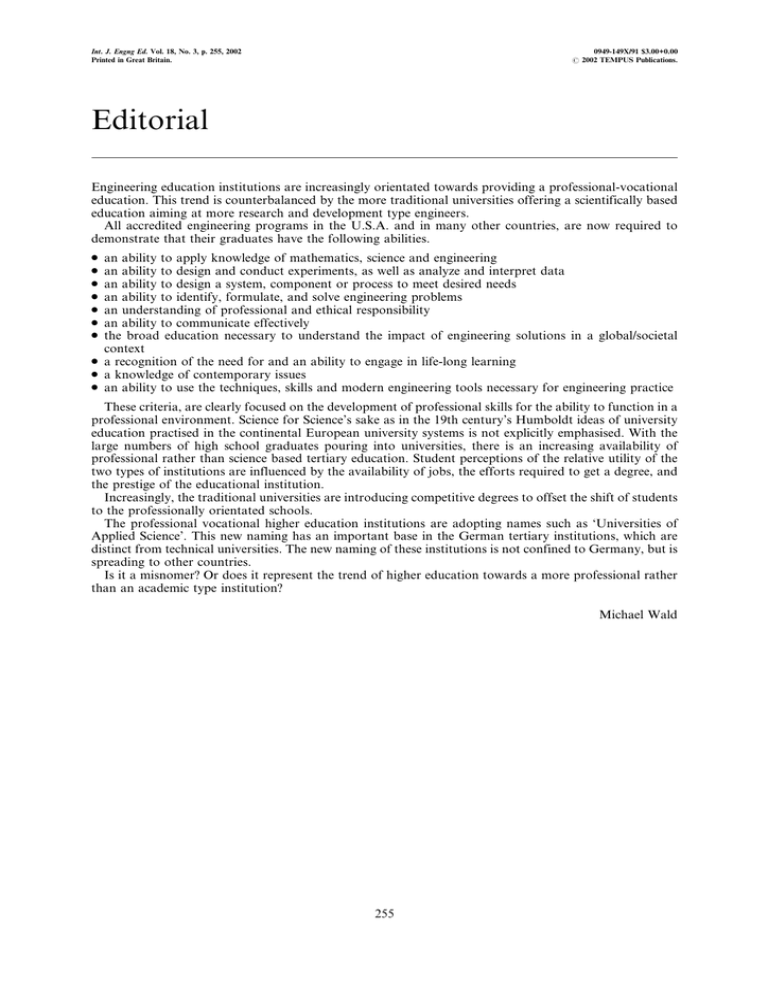
Int. J. Engng Ed. Vol. 18, No. 3, p. 255, 2002 Printed in Great Britain. 0949-149X/91 $3.00+0.00 # 2002 TEMPUS Publications. Editorial Engineering education institutions are increasingly orientated towards providing a professional-vocational education. This trend is counterbalanced by the more traditional universities offering a scientifically based education aiming at more research and development type engineers. All accredited engineering programs in the U.S.A. and in many other countries, are now required to demonstrate that their graduates have the following abilities. . . . . . . . an ability to apply knowledge of mathematics, science and engineering an ability to design and conduct experiments, as well as analyze and interpret data an ability to design a system, component or process to meet desired needs an ability to identify, formulate, and solve engineering problems an understanding of professional and ethical responsibility an ability to communicate effectively the broad education necessary to understand the impact of engineering solutions in a global/societal context . a recognition of the need for and an ability to engage in life-long learning . a knowledge of contemporary issues . an ability to use the techniques, skills and modern engineering tools necessary for engineering practice These criteria, are clearly focused on the development of professional skills for the ability to function in a professional environment. Science for Science's sake as in the 19th century's Humboldt ideas of university education practised in the continental European university systems is not explicitly emphasised. With the large numbers of high school graduates pouring into universities, there is an increasing availability of professional rather than science based tertiary education. Student perceptions of the relative utility of the two types of institutions are influenced by the availability of jobs, the efforts required to get a degree, and the prestige of the educational institution. Increasingly, the traditional universities are introducing competitive degrees to offset the shift of students to the professionally orientated schools. The professional vocational higher education institutions are adopting names such as `Universities of Applied Science'. This new naming has an important base in the German tertiary institutions, which are distinct from technical universities. The new naming of these institutions is not confined to Germany, but is spreading to other countries. Is it a misnomer? Or does it represent the trend of higher education towards a more professional rather than an academic type institution? Michael Wald 255
